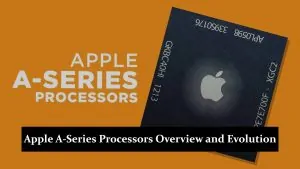GPS stands for Global Positioning System, a satellite-based navigation system that provides location and time information to a GPS receiver anywhere on or near the Earth’s surface. It operates independently of any telephonic or internet reception, though these technologies can enhance the effectiveness of GPS positioning. GPS is widely used in navigation systems for vehicles, mobile phones, and other devices to provide directions, map locations, and track movements.
Key Features of GPS
- Satellite Network: GPS relies on a network of at least 24 satellites orbiting the Earth, managed by the United States government. These satellites continuously transmit signals that can be received by GPS devices to determine their location.
- Triangulation: A GPS receiver determines its position by calculating the distance from multiple GPS satellites. By measuring the time it takes for the signals from at least four satellites to reach the receiver, the device can triangulate its exact position in three-dimensional space (latitude, longitude, and altitude).
- Global Coverage: GPS provides worldwide coverage, making it possible to determine precise locations anywhere on Earth. This global reach is invaluable for navigation, mapping, and tracking.
- Time Synchronization: GPS also provides highly accurate time information, which is essential for various applications such as telecommunications, financial transactions, and power grid management.
- Real-Time Positioning: GPS can provide real-time location updates, which is critical for applications like navigation, tracking, and emergency response.
Uses of GPS
- Navigation: One of the primary uses of GPS is in navigation systems for vehicles, pedestrians, cyclists, and maritime vessels. It helps users find the best routes, avoid traffic, and reach their destinations efficiently.
- Mapping and Surveying: GPS is essential in creating maps and conducting land surveys. It allows for the precise measurement of distances and the mapping of geographical features.
- Tracking: GPS is widely used for tracking the location of vehicles, assets, and individuals. This is useful for fleet management, logistics, and personal tracking devices.
- Outdoor Activities: GPS is popular in outdoor activities like hiking, geocaching, and boating, providing reliable navigation in remote areas.
- Emergency Services: Emergency responders use GPS to locate individuals in need of assistance, navigate to incident sites, and coordinate rescue operations.
- Scientific Research: GPS is used in various scientific fields, including geology, meteorology, and environmental studies, to track movements and changes in the Earth’s surface and atmosphere.
- Time Synchronization: GPS provides precise timekeeping, which is crucial for telecommunications, financial systems, and other industries that require synchronized time.
Importance of GPS
GPS has revolutionized navigation and location-based services, offering unprecedented accuracy and reliability. Its ability to provide real-time location data has made it indispensable in modern society, supporting a wide range of applications from everyday navigation to critical emergency response operations. The technology’s global coverage and independent operation make it accessible to anyone with a GPS receiver, regardless of their location. As GPS technology continues to evolve, it plays an increasingly vital role in various industries, enhancing efficiency, safety, and connectivity.



